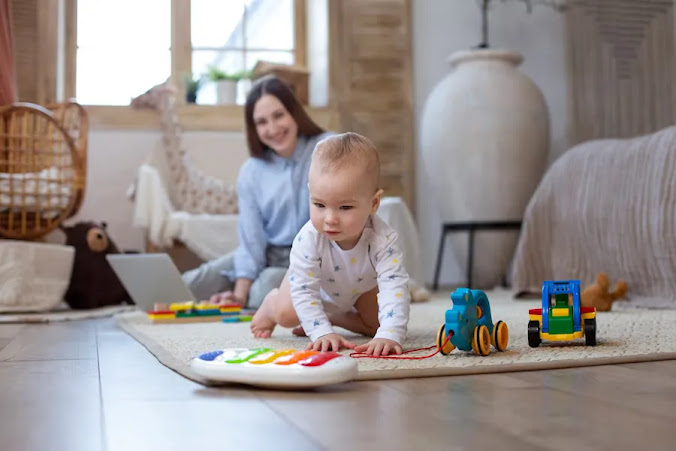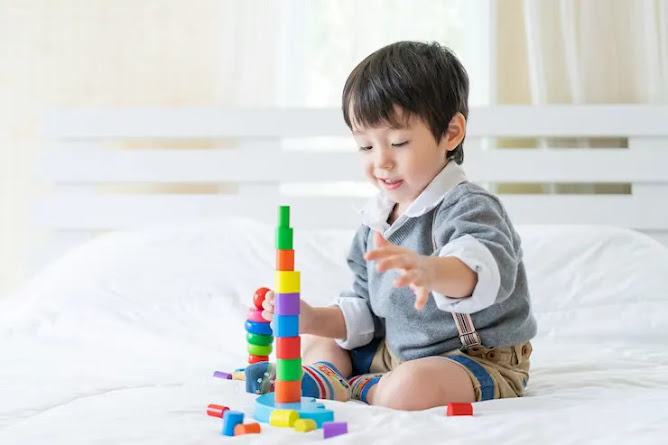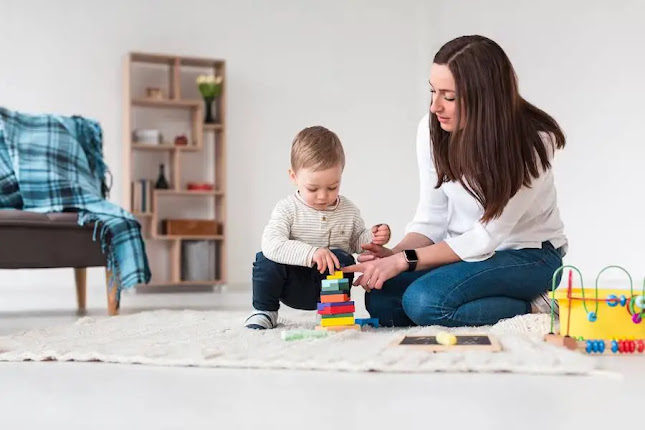The Exciting Preschool Years, Your Child Between 2-6 Years
Here are some different developmental milestones your child will reach between the ages of 2-6:
Physical Development: Your Little Superhero in the Making
Gaining greater control over their body
Fine-tuning gross and fine motor skills
Encouraging physical activities to develop strength and agility
Cognitive Development: Your Little Genius in the Making
Naturally curious and constantly soaking up information
Acquiring important skills that lay the foundation for future academic success
Encouraging love of learning through reading, imaginative play, and new experiences
Social and Emotional Development: Your Little Empath in the Making
Navigating the complexities of relationships and emotions
Developing critical social and emotional skills
Encouraging emotional intelligence through modeling healthy communication, active listening, and a safe and supportive environment.
To make sure that your child builds a foundation to reach his true potential, you need to make sure that you choose the perfect preschool, one that aligns with your values and fits with your child’s needs.
How to choose the perfect preschool
Choosing the right preschool for your child is a big decision that can impact their development in many ways. You want to find a preschool that will not only provide a safe and nurturing environment, but also foster your child's developmental milestones. Here are some tips to help you choose the perfect preschool for your little one:
Look for a curriculum that aligns with your child's developmental milestones needs
A good preschool should have a curriculum that is designed to meet the developmental needs of each age group, from 2-6 years old.
Check to see if the curriculum includes activities that promote physical, cognitive, social, and emotional development.
Consider the environment and atmosphere
The preschool should be a welcoming and safe environment that feels nurturing to your child.
Observe the atmosphere of the preschool and take note of the relationships between the staff and the children.
Check the qualifications and experience of the staff
The staff at the preschool should have the qualifications and experience to provide quality care and education to your child.
Ask about the credentials of the staff and their experience in working with children in this age group.
Look for opportunities for play and exploration
Play is an essential part of your child's development and learning, and a good preschool should provide ample opportunities for play and exploration.
Ask about the types of activities and experiences offered at the preschool, and how they support your child's development.
Research on different educational programs to understand your child’s educational needs. Your help as a parent is also crucial, for your child’s developmental milestones
How can you as a parent provide help
Here are some parenting tips:
Encourage Independence:
Encourage your child to try things on their own, such as dressing themselves, brushing their teeth, and pouring their own drink.
Celebrate their successes and provide support when they face challenges.
Offer Choices:
Offer your child choices to help them feel empowered and independent, such as choosing their clothes or picking what to have for breakfast.
Encourage them to make decisions and express their opinions.
Provide Positive Reinforcement:
Offer praise and encouragement when your child shows progress or meets a developmental milestone.
Use positive language and be specific about what they did well.
Read and Talk Often:
Reading to your child and having conversations with them can help develop their language and communication skills.
Ask open-ended questions and encourage them to share their thoughts and feelings.
Provide Opportunities for Play:
Play is an important part of development and helps children build social, emotional, and cognitive skills.
Provide opportunities for unstructured play, such as imaginative play, exploring nature, or building with blocks.
While every child develops at their own pace, there are some red flags that parents should look out for between the ages of 2-6.
Red flags to look out for
Here are some signs that may indicate that your child is not meeting their developmental milestones, and when you should reach out for help:
Delayed Speech and Language Skills:
If your child is not using words by 2 years old or is not able to form simple sentences by 3 years old, it may indicate a speech or language delay.
If your child is not able to follow simple directions or understand basic concepts by 4 years old, it may be a sign of a language disorder.
Social and Emotional Difficulties:
If your child has trouble making friends or seems overly aggressive or withdrawn, it may be a sign of social or emotional difficulties.
If your child seems overly anxious or has extreme mood swings, it may be a sign of a mental health issue.
Cognitive Delays:
If your child is struggling with basic problem-solving or memory skills, it may be a sign of a cognitive delay.
If your child is not able to recognize numbers or letters by 5 years old, it may be a sign of a learning disorder.
If you notice any of these red flags, it's important to reach out for help as soon as possible. Talk to your child's pediatrician or a developmental milestones specialist to get a proper evaluation and determine if your child needs additional support or intervention. Remember, early intervention is key to helping children overcome developmental delays and reach their full potential.



Comments
Post a Comment